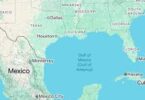Banning Kratom Would be a Terrible Mistake
By: Ryan F. Estevez, MD, PhD, MPH
Banning Kratom, a safe organic herbal supplement made from the leaves of the
Mitragyna speciosa tree, would be an unfortunate mistake.
The smooth 100-percent-natural leaves, related to coffee, have provided safe and effective relief for thousands of years as a natural analgesic, muscle relaxer, anti-inflammatory, and antioxidant. Kratom has also made a dramatic difference to those who suffer debilitating anxiety and PTSD. And, millions worldwide have successfully used it to overcome addiction to “hard” drugs that truly are dangerous and illicit.
In recent years, Kratom has been widely misrepresented as dangerous and without medical value. Some have lumped Kratom into the same category as “synthetics,” “research chemicals” and “designer drugs.” These disturbing labels overlook the fact that valuable remedies and dietary supplements derived from Kratom benefit lives.
Yet fervent efforts are underway to prohibit this botanical remedy that has a better safety profile than aspirin. Four states have already banned its sale, and Florida is considering it. This would be wrong-headed government over-reach.
As a practicing psychiatrist with a PhD in psychopharmacology, it is my job to clearly distinguish between “good” drugs that help people on a daily basis, and “bad” drugs that are epidemically abused. Kratom, in fact, is not a drug at all, nor is it a “bad” drug: It is a plant derivative no more dangerous than a cup of coffee.
Practicing in Florida’s drug rehabilitation arena since (YEAR), I am well aware of the positive effects Kratom has on those fighting and coming off of addictions to powerful opiates like heroin. I am also well aware of the tremendous toll those in the “bad” drug category have taken on individuals, families and society.
Anything can be abused. But to claim that people can be hooked on Kratom and therefore it should be banned is just not true. It simply isn’t powerful enough. In my practice in the state where this plant is under scrutiny, I have yet to see one patient in the throes of Kratom abuse or in a struggle to kick Kratom.
Pharmaceutical drugs are one of the leading causes of death in this country, killing one American every 19 minutes. Prescription opiate painkillers account for more than 475,000 emergency room visits annually. Over the counter pain relievers send over 56,000 people to the emergency room each year with liver-related complications.
When I heard attempts were being made to outlaw Kratom in Florida, I was outraged. To do so on a pharmacological basis is just plain absurd.
Stop picking on Kratom. Let’s focus instead on those substances, many of which are freely prescribed and readily available, that really do damage. Banning a beneficial, 100 percent natural botanical that is not addictive or life threatening doesn’t make sense.
Ryan F. Estevez, MD, PhD, MPH is a Courtesy Professor in Psychiatry and Neurosciences at the University of South Florida Morsani College of Medicine. He holds Board Certifications in General, Forensic and Geriatric Psychiatry, Addiction Medicine and Psychosomatic Medicine. Dr. Estavez received his ____ from Stanford University, his MD and PhD from Tufts University School of Medicine and his Masters in Public Health from Harvard University. He has no financial ties to Kratom, nor would he benefit monetarily from Kratom remaining legal or being banned.
Banning Kratom Would be a Terrible Mistake
By: Ryan F. Estevez, MD, PhD, MPH
Banning Kratom, a safe organic herbal supplement made from the leaves of the
Mitragyna speciosa tree, would be an unfortunate mistake.
The smooth 100-percent-natural leaves, related to coffee, have provided safe and effective relief for thousands of years as a natural analgesic, muscle relaxer, anti-inflammatory, and antioxidant. Kratom has also made a dramatic difference to those who suffer debilitating anxiety and PTSD. And, millions worldwide have successfully used it to overcome addiction to “hard” drugs that truly are dangerous and illicit.
In recent years, Kratom has been widely misrepresented as dangerous and without medical value. Some have lumped Kratom into the same category as “synthetics,” “research chemicals” and “designer drugs.” These disturbing labels overlook the fact that valuable remedies and dietary supplements derived from Kratom benefit lives.
Yet fervent efforts are underway to prohibit this botanical remedy that has a better safety profile than aspirin. Four states have already banned its sale, and Florida is considering it. This would be wrong-headed government over-reach.
As a practicing psychiatrist with a PhD in psychopharmacology, it is my job to clearly distinguish between “good” drugs that help people on a daily basis, and “bad” drugs that are epidemically abused. Kratom, in fact, is not a drug at all, nor is it a “bad” drug: It is a plant derivative no more dangerous than a cup of coffee.
Practicing in Florida’s drug rehabilitation arena since (YEAR), I am well aware of the positive effects Kratom has on those fighting and coming off of addictions to powerful opiates like heroin. I am also well aware of the tremendous toll those in the “bad” drug category have taken on individuals, families and society.
Anything can be abused. But to claim that people can be hooked on Kratom and therefore it should be banned is just not true. It simply isn’t powerful enough. In my practice in the state where this plant is under scrutiny, I have yet to see one patient in the throes of Kratom abuse or in a struggle to kick Kratom.
Pharmaceutical drugs are one of the leading causes of death in this country, killing one American every 19 minutes. Prescription opiate painkillers account for more than 475,000 emergency room visits annually. Over the counter pain relievers send over 56,000 people to the emergency room each year with liver-related complications.
When I heard attempts were being made to outlaw Kratom in Florida, I was outraged. To do so on a pharmacological basis is just plain absurd.
Stop picking on Kratom. Let’s focus instead on those substances, many of which are freely prescribed and readily available, that really do damage. Banning a beneficial, 100 percent natural botanical that is not addictive or life threatening doesn’t make sense.
Ryan F. Estevez, MD, PhD, MPH is a Courtesy Professor in Psychiatry and Neurosciences at the University of South Florida Morsani College of Medicine. He holds Board Certifications in General, Forensic and Geriatric Psychiatry, Addiction Medicine and Psychosomatic Medicine. Dr. Estavez received his ____ from Stanford University, his MD and PhD from Tufts University School of Medicine and his Masters in Public Health from Harvard University. He has no financial ties to Kratom, nor would he benefit monetarily from Kratom remaining legal or being banned.






